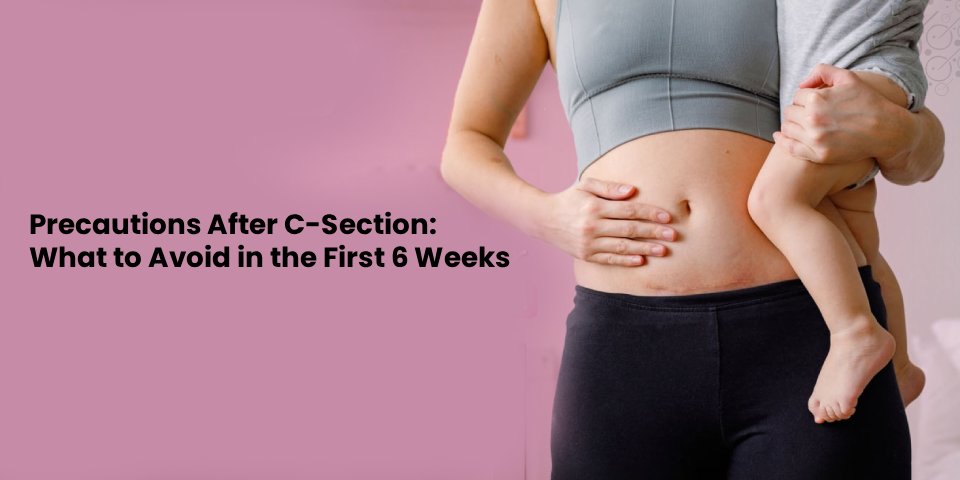- +91 92268 22020 / +91 95605 06620

A caesarean delivery is not just a childbirth method—it is a major surgical procedure. The first 6 weeks after C-section are crucial for proper healing, yet many new mothers unknowingly make mistakes that delay recovery. Understanding precautions after C-section is important to avoid complications like infections, wound separation, or internal pain. From lifting heavy objects to poor wound care, even small missteps can affect your recovery. This guide will help you identify dangerous activities after cesarean and clearly explain what to avoid in the early days. For expert advice, consult a pregnancy doctor in Pune or the best gynecologist in Wakad like Dr. Asmita Dongare at Cloverleaf Speciality Clinic or Jupiter Hospital.
A caesarean section, commonly known as a C-section, is a major surgical procedure that requires careful attention during the recovery period. Unlike vaginal delivery, C-section recovery involves healing from abdominal surgery while caring for your newborn, making it essential to understand what activities and behaviors to avoid during the crucial first six weeks.
The first six weeks post-caesarean delivery represent the most critical period for proper healing. During this time, your body works to repair the incision site, restore internal organs to their pre-pregnancy state, and establish breastfeeding patterns. According to medical experts, full recovery from a C-section typically takes 6-8 weeks, with the initial healing of skin edges occurring within 48 hours, while internal tissue healing continues for several months
Recovering from a C-section takes time, patience, and the right guidance. By following the essential first 6 weeks post-C-section restrictions, you reduce the risk of complications and give your body the care it truly needs. Avoid heavy lifting, strenuous workouts, early driving, and soaking baths until your doctor gives the green light. Focus on proper rest, gentle movement, good nutrition, emotional well-being, and wound care. If you’re in Wakad, Baner, or anywhere in PCMC Pune, consult experts like Dr. Asmita Dongare at Cloverleaf Speciality Clinic, trusted for high-risk pregnancy and postpartum care. Your body has done something incredible—allow it the time and care it deserves to heal fully and safely. Call us at 92268 22020 for more Info.
Avoid heavy lifting, core exercises, bending too much, and driving. Proper wound care and rest are essential for safe recovery.
You should wait at least 6 weeks before resuming routine activities. Always check with your pregnancy doctor in Pune or female gynecologist in Wakad or Baner before doing so.
Avoid frequent stair climbing for the first 2–3 weeks. If necessary, do it slowly and with support to prevent C-section healing mistakes.
Yes, but only your baby. Avoid lifting anything heavier than the baby to reduce the risk of wound reopening or postpartum cesarean complications.
You can shower after a few days, but avoid baths, pools, or soaking the incision area until your gynecologist in Wakad or Baner says it’s safe—usually after 4–6 weeks.
Watch for fever, foul-smelling discharge, severe pain, or redness around the incision. If you notice any of these, consult your high-risk pregnancy doctor in Pune immediately.
WhatsApp us